Environment Agency bosses defend flooding response
- Published
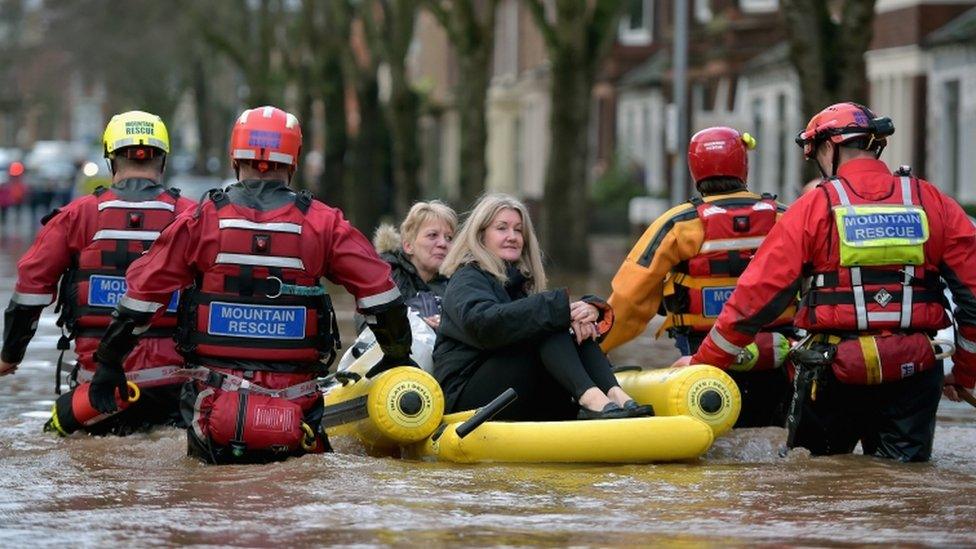
People were evacuated from their homes in Carlisle during the floods over Christmas
Environment Agency bosses have defended the organisation's response during the December storms, which left 16,000 homes flooded in England.
Chairman Philip Dilley, criticised for holidaying in Barbados during the crisis, admitted it "would have been better" to have returned earlier.
But Sir Philip said flood defences had protected properties and saved lives.
Chief executive Sir James Bevan told MPs it was "heartbreaking to see what has happened to those communities".
December was the wettest month on record in the UK, with Cumbria, Lancashire and Yorkshire among the worst affected by the floods.
Parts of Northern Ireland, Wales, and Scotland also saw flooding and damage from a series of storms, including Desmond, Eva and Frank.
Danny Savage returns to Carlisle to see how residents are rebuilding after Storm Desmond
Meanwhile, Labour leader Jeremy Corbyn clashed with the prime minister over funding for flood defence schemes.
Mr Corbyn attacked the government for cancelling a scheme in Leeds and turning down applications to improve protection in York and Cumbria. But Mr Cameron said spending on flood protection had increased to £2bn in England.
The Environment Agency (EA), which covers England, is responsible for managing the risk of flooding from main rivers and issues flood alerts and warnings.
Sir Philip told the Environment, Food and Rural Affairs Committee: "They [the flood defences] didn't fail, they protected properties against flooding that would have occurred had they not been there, and most importantly they gave a little more time for people to rescue precious possessions and to get out.
"They undoubtedly saved lives."
'Biggest regret'
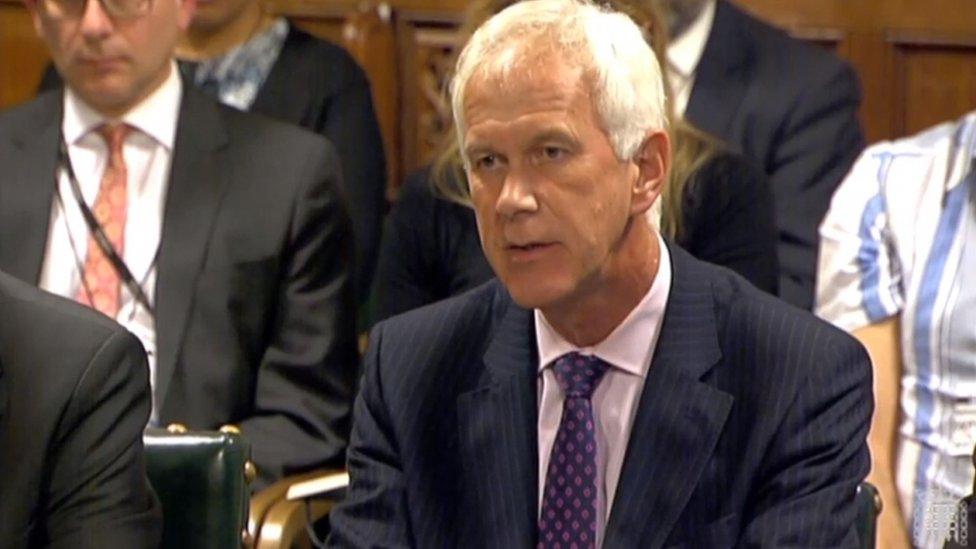
Environment Agency chairman Sir Philip Dilley responded to criticism of his Christmas holiday
The EA faced criticism last month that it avoided telling journalists that its chairman Sir Philip was in Barbados over Christmas at the time of some of the worst flooding.
Responding to a question on the controversy, Sir Philip said: "One of my biggest regrets is that that focus on me has detracted from what really matters, which are the people… that have been affected."
He said he has two homes, including one in the Caribbean where his wife is from, adding that he kept in "regular contact" and worked from there.
Cameron and Corbyn clash over flooding
Earlier, Lynne Jones, owner of a guesthouse in Keswick and chairwoman of the Keswick Flood Action Group, told MPs the floods in Cumbria had been "catastrophic".
"It's the worst nightmare," she said.
"I never in my wildest dreams expected the amount of water we had that day."
'A disaster'
She told the committee that too much attention was given to protecting wildlife, including a local scheme to protect freshwater mussels rather than protecting people.
"My sympathies to the mussels but I need my community protected," she said.
"The devastation that has happened with bridges down, particularly the A591, is a disaster for a county dependent on tourism, and people getting from one side of the Lake District to the other," she said, adding businesses would need a lot of support.
"We've had so much mud and so much water."
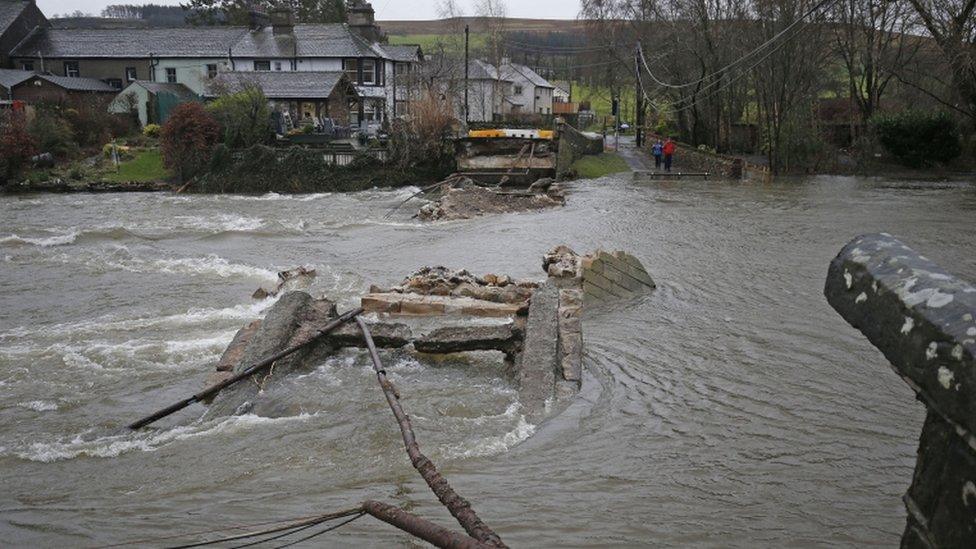
Pooley Bridge in Ullswater, Cumbria, which was washed away by flood water in December
Rob Johnson, chief executive officer of the Cumbrian Chamber of Commerce, said 10% of the county's businesses had been affected in the floods, "way above" the scale seen when the county had been flooded before.
And Keith Little, cabinet member for highways, transport and flood protection at Cumbria County Council, told the MPs that 94 communities had been affected in the floods, in which one person died and 6,500 houses were flooded.
"It's been a horrendous situation just before Christmas," he said.
Mr Little also warned of the mental health impact of flooding and said after the 2009 floods in the area people were still coming forward with mental health issues in 2012.
"Cumbria is very fragile at the moment, our people are very tired," he said.
"Some of our responders are also victims here, trying to get into work and do the day job and then having to deal with floods at home," he said.
- Published6 January 2016
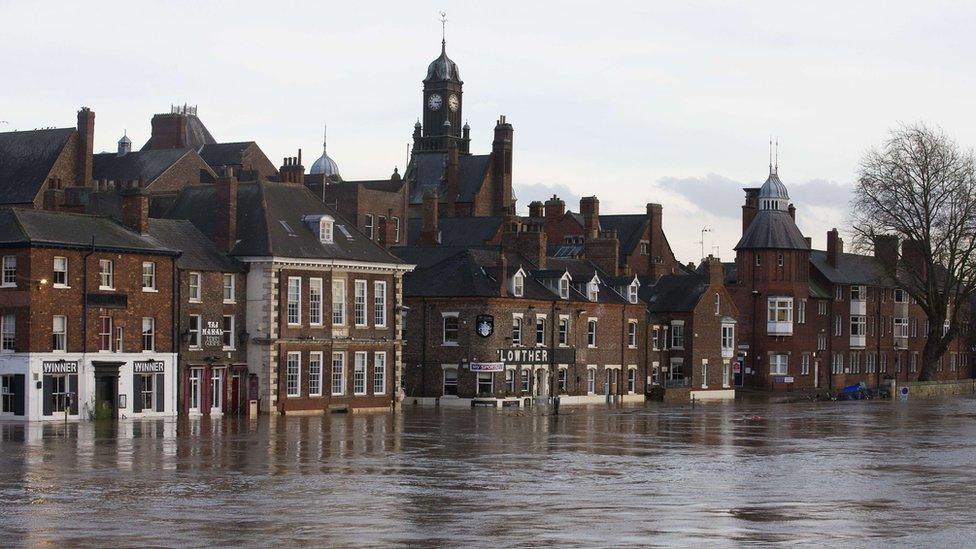
- Published5 January 2016
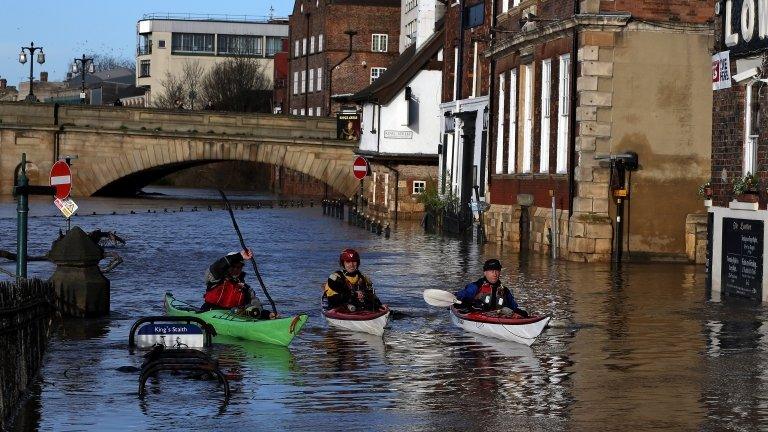
- Published7 January 2016
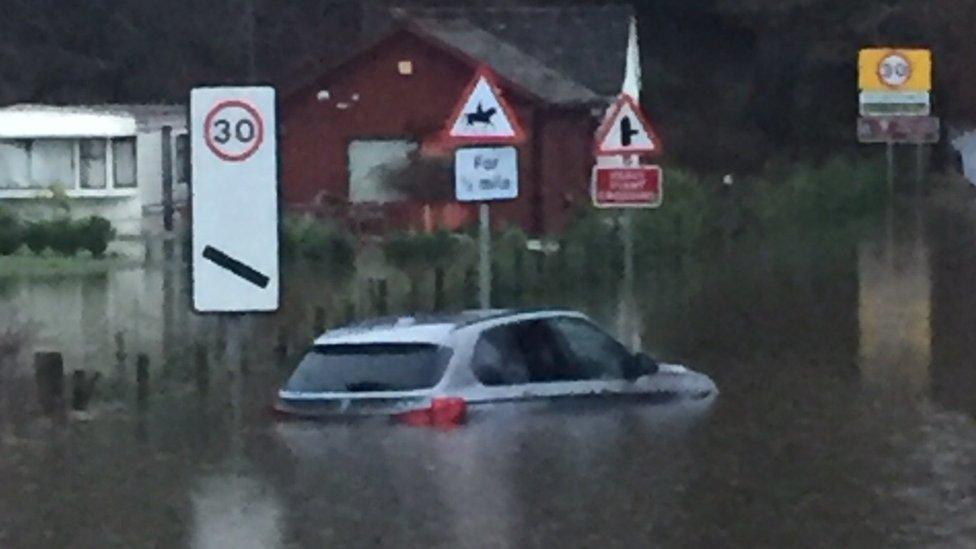
- Published5 January 2016

- Published29 December 2015
